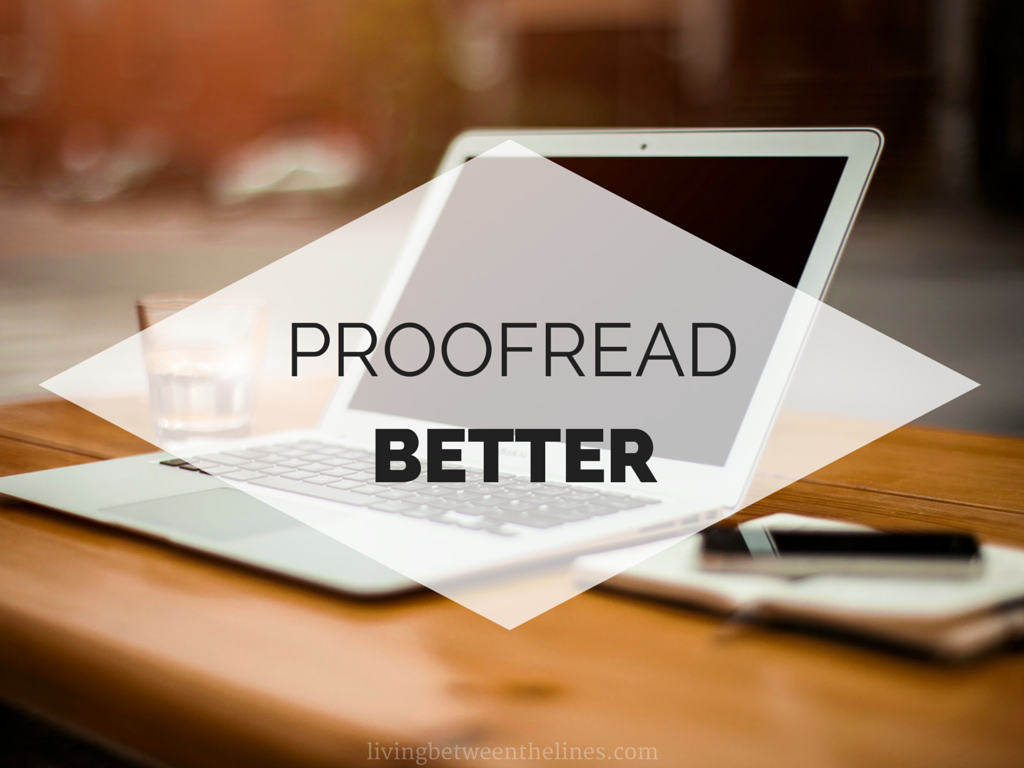It is a truth universally acknowledged that literally no one wants to proofread. If you’ve already slaved away writing something, the last thing you want to do is go over it in painstaking detail… But often, that’s exactly what our writing needs to be its best. So how do we convince ourselves to buckle down and reread our own work? By taking the worst part of the work out, of course. All too often, proofreading just means mindlessly scanning the page, hoping mistakes jump out. But aside from being ineffective, this strategy is boring and hard to focus on. In line with my earlier Procrastinate Better post, here are some strategies for improving your proofreading skills!
Proofread Better in 5 Steps
The best proofreading is the proofreading you can actually convince yourself to do – we’re all guilty of deciding not to reread something we’ve finally finished at 3 in the morning. So if you’re running low on time or motivation, easy proofreading might be just what you need.
Check the most common mistakes first.
The basics are the basics for a reason. It’s/its, affect/effect, their/there/they’re, your/you’re – if you pulled an all-nighter or you’ve been writing for a while, it’s easy to get switched around on similar words. Use Ctrl+F or your word processor’s search feature and make sure you’ve avoided common mistakes, some of which spellcheckers won’t highlight. Another thing spellcheckers can’t reliably catch? Misspelled names and titles. I might have submitted a research paper on an author with his name spelled incorrectly. Repeatedly. Don’t be me.
Read out loud.
I’ve suggested this before, but it’s surprisingly helpful. Reading out loud forces you to slow down and think about each word that you wrote, keeping you engaged in proofreading. Especially if you’re reading your own writing, it’s easy to miss mistakes. Reading over an essay never hurts, but hearing your grammar error or awkward wording out loud makes it easier to catch and fix. For those of us with roommates, this isn’t always practical, but even just whispering or lip syncing your paper forces you to slow down and think about how it sounds – which is the point.
Rewrite your outline as you read.
Hopefully, you had an outline to begin with – if so, put it aside. (If not, I have a paper planning guide for next time.) Try reading through your paper (maybe out loud?) and (re)writing an outline based on what’s actually on the page. If anything seems off – a sudden transition or lack of evidence – mark it on the outline. Then, compare it to your original ideas and the requirements for what you’ve written. If there’s anything missing from your rewritten outline, go back and add it to the paper, and if you caught any mistakes, check your original plan again to see if it has a solution.
Exchange with a friend.
If you want to proofread better, maybe it’s best that you aren’t reading your own writing. For in-class writings, nothing compares to letting a friend with the same assignment read over your paper for you. (Of course, you should offer to read for them, too.) A different perspective will help you catch errors you never would have on your own, and your friend might have some great ideas based off their interpretation of the prompt (or you could learn something from their writings). Even if your friend isn’t in the exact same class, their eye can be helpful, and setting up a paper exchange system is almost always worth the few minutes it’ll take you to reciprocate.
Try a proofreading site.
There are tons of options on the internet that might catch more than your MS Word spellchecker. Personally, I like Paper Rater, which gives you a lot of different types of feedback, but a quick google search for “online proofreader” will give you a ton of results to choose from, and can highlight things like uncommon grammar or spelling errors, passive voice, overused words, and many other features a basic spellchecker won’t. Of course I have to say – never rely on a random computer program for all your proofreading needs.
There are lots of options to help you proofread better – hopefully some of these ideas will help. Did I miss your favorite strategy? Let me know! I’m considering extending this post series into a “Live Better” monthly feature – are there any topics you’d like to see covered? Suggest them in the comments!




